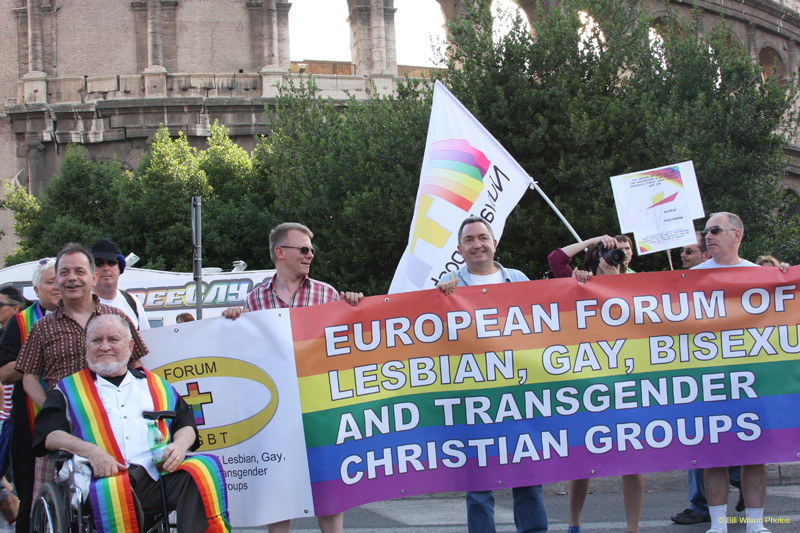
Since the 1990s, Christian LGBT groups have appeared in Eastern European, post-communist countries, but they have to live in a difficult social and religious environment, although changes in Western churches on those issues inspire some of them to seek constructive dialogue with their own churches, writes theologian and sociologist Michael Brinkschröder (Munich) in Religion & Gesellschaft in Ost und West (August). A French Catholic priest founded the European Forum of Lesbian, Gay, Bisexual and Transgender Christian Groups in Western Europe in 1982, which now counts some 50 member organizations in 23 countries, including Central and Eastern European ones. Groups from the latter countries started participating at the 1992 meeting. Many of those groups, however, were unable to establish solid foundations. Despite support and training provided by Western European groups as well as by the U.S.-based Metropolitan Community Church to their Eastern European counterparts since 2002, several of them have declined or failed to reach stability, frustrated by the lack of dialogue with their churches (or excommunications), not to mention burnout experienced by some activists.
Such setbacks have not prevented the movement from expanding, targeting countries from the former Soviet Union since 2008 (Russia, Ukraine, Armenia, Kyrgyzstan, Moldavia, and Estonia). Some of those groups limit membership to specific denominations, such as Queer Credo in Kyiv for Orthodox homosexuals. In contrast, another group in Moscow is ecumenical and also welcomes non-Christian seekers. This diversity, however, makes it difficult to find a common identity—thus most groups affirm a Christian orientation. Recently, there have been renewed interest and activities by Catholic LGBT groups in several countries, something that may be influenced both by current debates in those countries and by the “Pope Francis effect,” possibly opening the way to a more liberal approach by the Roman Catholic Church. Brinkschröder remarks that one of the difficulties for those Christian LGBT groups is that they find themselves in the midst of culture wars between the secular LGBT movement, on the one hand, and conservative churches that sees them as sinners, on the other hand. This tension puts them in a position that many people fail to understand. Moreover, due to widespread hostile attitudes, LGBT Christians tend to internalize an attitude of fear that is not conducive to productive cooperation. It is also difficult for several groups to get legally registered, thus leaving their status in limbo.
(Religion & Gesellschaft in Ost und West, Birmensdorferstr. 52, P.O. Box 9329, 8036 Zurich, Switzerland – http://www.g2w.eu)
